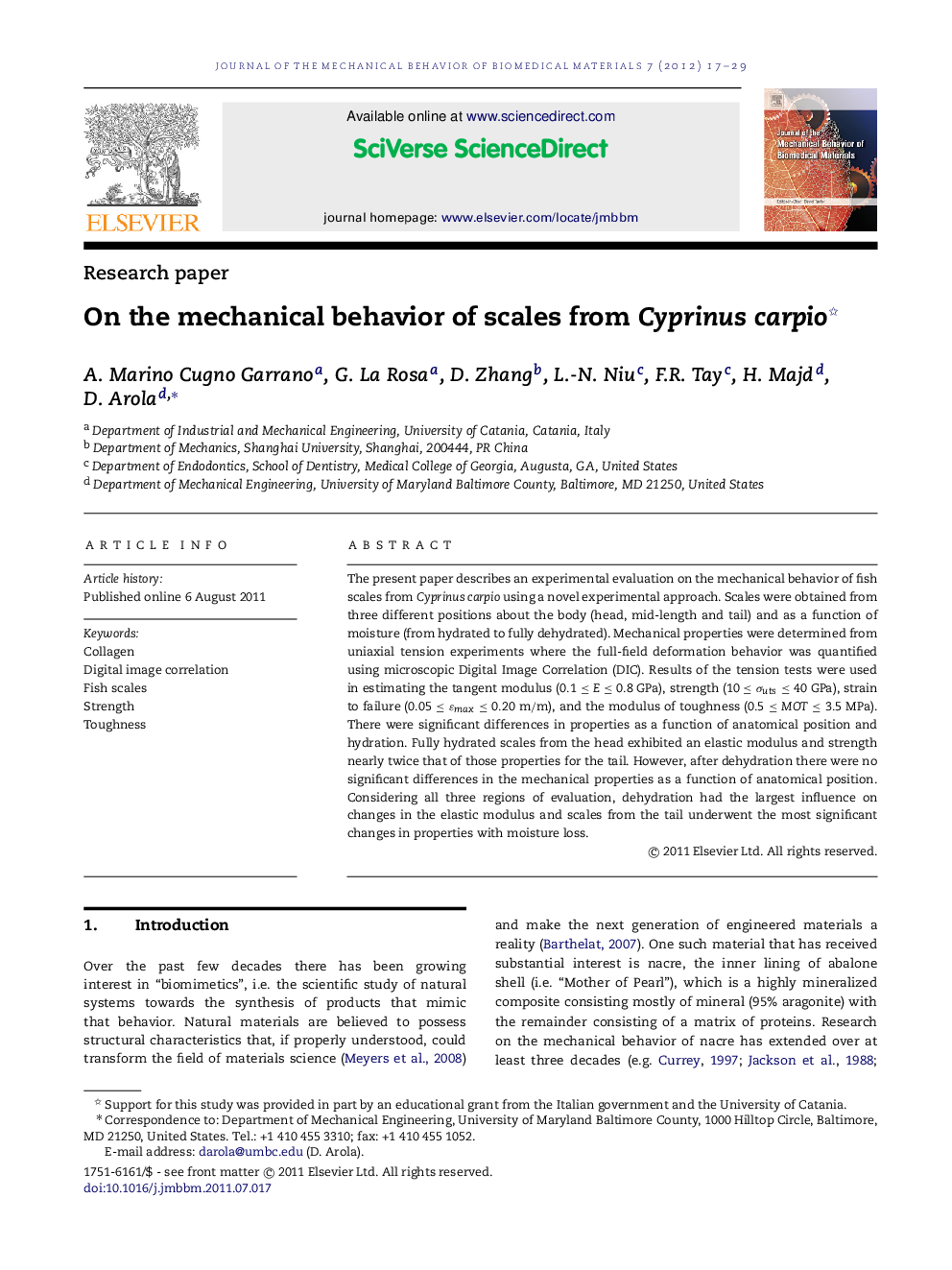| Article ID | Journal | Published Year | Pages | File Type |
|---|---|---|---|---|
| 811146 | Journal of the Mechanical Behavior of Biomedical Materials | 2012 | 13 Pages |
The present paper describes an experimental evaluation on the mechanical behavior of fish scales from Cyprinus carpio using a novel experimental approach. Scales were obtained from three different positions about the body (head, mid-length and tail) and as a function of moisture (from hydrated to fully dehydrated). Mechanical properties were determined from uniaxial tension experiments where the full-field deformation behavior was quantified using microscopic Digital Image Correlation (DIC). Results of the tension tests were used in estimating the tangent modulus (0.1≤E≤0.8GPa), strength (10≤σuts≤40GPa), strain to failure (0.05≤εmax≤0.20m/m), and the modulus of toughness (0.5≤MOT≤3.5MPa). There were significant differences in properties as a function of anatomical position and hydration. Fully hydrated scales from the head exhibited an elastic modulus and strength nearly twice that of those properties for the tail. However, after dehydration there were no significant differences in the mechanical properties as a function of anatomical position. Considering all three regions of evaluation, dehydration had the largest influence on changes in the elastic modulus and scales from the tail underwent the most significant changes in properties with moisture loss.
